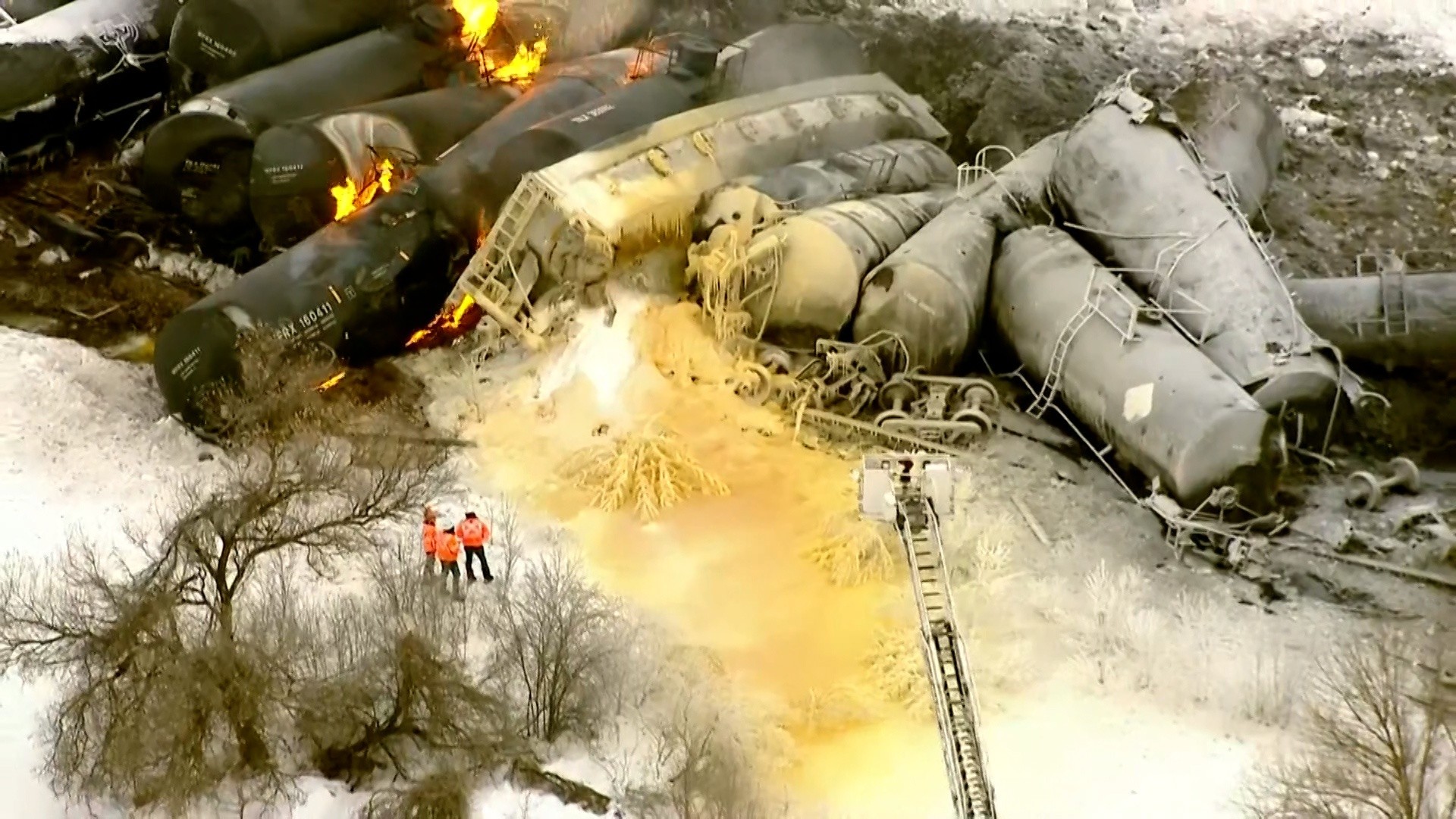
Multiple United States government investigators became ill in March while examining health impacts after the derailment of a train carrying toxic materials in Ohio, several news outlets reported Thursday.
Hazardous chemicals were released during the derailment in East Palestine on Feb. 3, causing concerns about the air, water and soil in the surrounding community. Investigators who had been going to local houses while studying possible health impacts began to experience sore throats, headaches, coughing and nausea, CNN first reported.
The agency later confirmed the report to The Columbus Dispatch.
“Symptoms resolved for most team members later the same afternoon, and everyone resumed work on survey data collection within 24 hours. Impacted team members have not reported ongoing health effects,” a CDC spokesperson told CNN in a statement.
Get top local stories in DFW delivered to you every morning. Sign up for NBC DFW's News Headlines newsletter.
The Norfolk Southern freight train had 11 tank cars carrying hazardous materials when it derailed near the Ohio-Pennsylvania border, spilling chemicals into nearby creeks and rivers. Roughly half of the 5,000 residents of East Palestine were evacuated while responders burned toxic chemicals in some derailed cars to prevent an uncontrolled explosion.
In the wake of the derailment and response, Norfolk Southern and government officials made repeated assurances that the air and drinking water were not hazardous.
The reported illnesses suffered by investigators were not the first symptoms to come to light. U.S. railroad union leaders informed Biden administration officials in early March that rail workers at the derailment site had fallen ill.
Ohio attorney general Dave Yost said in March that people who had visited the site informed him of experiencing sore throats and other irritations. Yost himself said he felt "discomfort" while on location.
CNN also said that two contractors working for the U.S. Environmental Protection Agency reported symptoms related to strong odors.
Norfolk Southern, the company that operated the train, was subsequently sued by Ohio and the by the U.S. Department of Justice.
Norfolk Southern said in March that the company is committed to finding a solution to address "long-term health risks through the creation of a long-term medical compensation fund."



